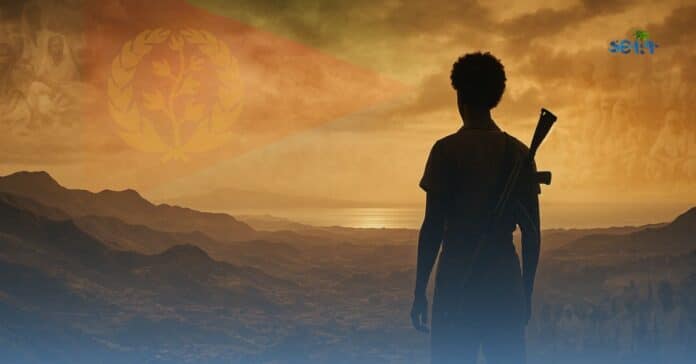As Ethiopia renews its controversial campaign for sovereign access to the Red Sea, Eritreans and observers of the Horn of Africa are once again compelled to revisit enduring injustices that continue to shape the region. Closer examination reveals that this campaign is not merely about trade corridors or development. It is a manifestation of a deeper, unresolved issue: the failure to confront and account for Ethiopia’s illegal annexation and prolonged military occupation of Eritrea.
A Forgotten Crime Against Decolonisation
In 1962, Ethiopia unilaterally dissolved the United Nations–sponsored federal arrangement established in 1950 and annexed Eritrea in violation of international law. This act extinguished Eritrea’s nascent autonomy and began a brutal occupation, in stark contrast to the spirit of the post–World War II decolonisation movement. While many African territories gained independence, Eritrea was denied its most basic right: self-determination.
Two forces enabled this injustice:
• Geostrategic Interests of the United States: In the Cold War context, the U.S. prioritised strategic control over the southern Red Sea. Eritrea’s location and its military and intelligence installations—including the future Kagnew Station—were deemed too valuable to risk falling into non-aligned hands. Supporting Haile Selassie’s Ethiopia, Washington subordinated Eritrean aspirations to global power politics.
• Ethiopian Expansionism: For Ethiopia’s rulers, annexing Eritrea fulfilled a long-standing ambition to transform a landlocked empire into a coastal power. Cloaked in rhetoric about national unity, the annexation disregarded international norms and the will of the Eritrean people. It triggered a thirty-year war of liberation—one of Africa’s longest and most bitter anti-colonial struggles.
A War Without Accountability
During Eritrea’s long war for independence, civilians suffered immense atrocities. Entire villages were razed. Napalm and cluster bombs devastated communities. Haile Selassie’s scorched-earth policies in the 1960s caused mass displacement, forcing tens of thousands into refugee camps in eastern Sudan—many of which still exist today. The Derg regime continued the repression with campaigns marked by massacres and forced relocations.
Several atrocities exemplify this brutal legacy:
• Um Hajer Massacre – 14 December 1974: Ethiopian troops attacked the town of Um Hajer in western Eritrea, killing scores of civilians, including women and children.
• Ona Massacre – 14 December 1974: On the same day, Ethiopian forces surrounded the village of Ona near Keren and massacred over 625 civilians, many of whom were burned alive.
• Weki Duba (Woki Duba) Massacre – 2 February 1975: Between 80 and 103 civilians seeking refuge in a church were summarily executed by Ethiopian troops.
• Agordat Massacre – 9 March 1975: Following attacks by the Eritrean Liberation Front (ELF), Ethiopian forces retaliated by killing 208 residents of Agordat.
• She’eb Massacre – May 1988: Ethiopian forces killed nearly 500 civilians in She’eb, including 299 who were crushed under advancing tanks while attempting to flee.
These were not collateral damages—they were systematic violations of humanitarian law and war crimes.
After independence in 1991, Eritrea made a principled choice. It did not demand reparations or tribunals but prioritised peace, regional cooperation, and good neighbourliness. Hoping to inaugurate a new era of mutual respect and stability in the Horn, it rejected cycles of revenge that had long defined the region.
The Consequences of Forgoing Justice
Eritrea’s decision to forgo accountability came with risks. It assumed that diplomacy could replace retribution. Yet this moral restraint may have enabled successive Ethiopian regimes—and the international community—to evade responsibility. What should have been recognised as a historical crime came to be viewed as a political miscalculation.
Revisionist narratives have since resurfaced. Ethiopian officials and commentators now frame access to Eritrean ports as a correction of historical injustice. This entitlement—claiming Eritrea’s ports as unfairly withheld—echoes the imperial logic behind the original annexation.
This narrative extends beyond Eritrea. Ethiopia has challenged Djibouti’s sovereignty by falsely claiming colonial-era lease agreements. It has also signed a controversial MoU with Somaliland, undermining Somalia’s territorial integrity and violating the African Union’s founding principles.
A Dangerous Misreading of Eritrea’s Restraint
Eritrea’s post-independence restraint was never an admission of weakness—it was a strategic, moral stance. Yet, rather than deter aggression, it has emboldened expansionist elements in Ethiopia. Some now view Eritrea’s sovereignty as negotiable.
This misreading has normalised destabilising ideas about natural borders and historical rights. Such notions threaten not only Eritrea but the entire Horn. They undermine uti possidetis juris, the principle that colonial borders must be preserved to avoid conflict and ensure stability.
The Path to Lasting Peace
Peace in the Horn of Africa cannot rest on silence or selective memory. It requires truth, recognition, and mutual respect. Acknowledging Ethiopia’s illegal annexation and the human cost is not about reopening wounds—it is about laying a foundation for genuine reconciliation.
The question is not whether Ethiopia should seek maritime access. It is whether the international community will allow that pursuit to be framed through entitlement rather than lawful diplomacy.
Eritrea, like all African nations forged through anti-colonial struggle, has earned its sovereignty. It is not a bargaining chip. It is a legal, historical, and moral fact.
The world must respect it—and Ethiopia must accept it.

